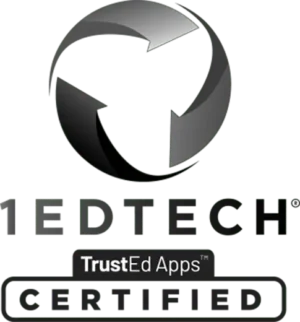
Kristin Van Deman, instructional coach from Aurora Public Schools in Colorado, shares ways she has continued to grow as an instructional coach.
It’s hard to believe, but this coming school year will mark my eighth year as an instructional coach.
My journey as a coach these past years has been a winding one, filled with its fair share of ups and downs. Working with adult learners isn’t always easy, and there have been several times when I’ve missed the comfort and security of a classroom full of easy-going kids and the collegiality of a grade level “team.” Yet, as I write this blog post and reflect on how far I’ve come and what I’ve learned, I sure am glad I decided to stick with it!
One of the most important lessons I’ve learned along the way is the importance of continuing to push yourself, to learn, and to grow. In this pursuit of excellence, you’ll remain engaged in your work and continually motivated to be the kind of coach all teachers need.
What this looks like for you may look differently than what it looks like for another coach, depending on your district, school, and the support provided. If you’re like me, you may be “on your own” to advocate and pursue your own professional development. But don’t let that scare you—you can do it!
Tips for Continuing Growth as a Coach
1) Mentor a Coach
This year we hired a new, first year math coach, and throughout the year I’ve acted as her mentor. Serving in this role for a new coach has been a fun learning experience for me and has helped me grow in several ways.
We have weekly meetings, during which she brings up questions regarding coaching practices or situations that I may not have considered for a long time. These questions help me to reflect on my own practice and philosophy of coaching, as I strive to share the best advice possible.
I’ve also been able to provide her feedback in coaching areas I’m working on continually improving myself, such as: coaching cycles, facilitating professional development, and working with adult learners. While providing feedback, I push myself to really think hard about the “criteria” one might consider that makes for a successful coach.
If you have the opportunity to take a new coach under your wing, I promise it will be beneficial for you both!
2) Ask for Feedback
Just this past week in a post-observation meeting with my principal, one of the follow-up questions he asked me was, “How do you ask for feedback?” Great question! Continually seeking feedback is an important piece of continuing to grow as a coach.
This feedback can take in place in several forms:
- Direct feedback from your principal or mentor
- Collected feedback on a survey you send out to teachers you’ve coached
- Video of yourself coaching that you observe on your own to analyze your questioning skills, listening skills, or facilitation skills
It’s easy to stay within your comfort zone and not step out to take the risk of asking for feedback. However, as I look back, I’m not sure how I would have continued to get better without it.
3) Expand your Network
Coaching can feel like a lonely gig at times. You might be the only coach in your building, and that can be tough. This is why I believe it’s important to take a few extra steps to expand your network.
Practically, this means thinking creatively about how you can connect with and learn from other coaches out there. Sometimes you might feel like it’s just you on an island, but there are many other coaches out there engaging in the same daily work.
One way that I’ve expanded my network was by starting a blog. This platform has introduced me to a wide variety of experiences, opportunities, and connections with other coaches that I wouldn’t have had otherwise. I also used the Feedly app to help me stay up to date on the work other educators and coaching platforms are sharing on their blogs. This daily snippet of reading helps me feel inspired and motivated to make it a great day.
Twitter is another terrific resource. There are a ton of highly engaged coaches on this platform willing to freely share insights and resources, and excited to make connections with others.
4) Keep Your “Street Cred”
As coaches, we are in classrooms visiting teachers and collecting data to support our feedback. But, how often are we the ones actually planning for and conducting the teaching? Staying connected to the work that classroom teachers do everyday is very important for myself as an educator, as well as my work as a coach.
I make it a point to keep my teaching skills sharp and gain “street cred” through modeling, covering a teacher’s room when needed, co-teaching, or even jumping in to sub for a full day. Regular teaching keeps me engaged, passionate, and informed about the coaching work I do.
5) Double Down on Knowledge
Whenever I’m starting to feel a bit unmotivated or lacking the energy that I need, I pick up a coaching book I’ve been wanting to read. Nothing gets me back on track more quickly than learning. For example, right now I’m reading “The Impact Cycle” by Jim Knight and it’s shown me a new way of approaching coaching cycles.
Learning can take on many different forms: books, blogs, Twitter, an online course, or shadowing a more expert coach. Whatever the form of learning is, know that it’ll serve you well in your pursuit of continuing to grow.
Final Note
When you’ve been coaching for a while, it can be easy to feel like, “I’ve got this.” However, we might get stuck in a rut of habitualized practices and routines. Don’t let it happen! Engaging in the work of instructional coaching is a special opportunity, and there are always ways to continue growing
About Our Guest Blogger
Kristin Van Deman has been in education for fourteen years. This will be her seventh year working as an instructional coach, with a focus on literacy. She enjoys sharing her work and connecting with other coaches on her blog at MsHouser.com. In her free time you can find her hanging out with her Chocolate Lab, sipping a cup of tea, or planning for the week ahead. Follow Kristin on Twitter @ms_houser
Stay Connected
News, articles, and tips for meeting your district’s goals—delivered to your inbox.












